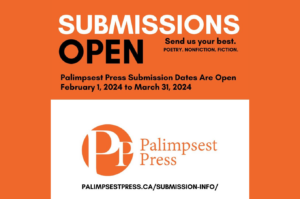It’s 1799 in Japan. Jacob de Zoet has come all the way from Holland to seek fortune in Dejima, an enclave of European merchants living in Japan. But Dejima is no El dorado and things get dark and devious as the fortune-seeking Hollander finds himself entangled with the disfigured daughter of a Samurai Doctor and other strange encounters. That’s the gist of David Mitchell’s new novel titled The Thousand Autumns of Jacob de Zoet.
For someone who was blown away by Mitchell’s picaresque, epic, palindromic, sci-fi novel thingy called Cloud Atlas, I’m pretty psyched that a new novel is out. But what’s even cooler is that since Mitchell has a new book out, he has to promote it, meaning interviews, meaning getting into the head of one of my favorite authors. In a recent interview published by The Paris Review, Mitchell comes close to telling all. He opens up about his stammering, the role his Japanese wife plays in his writing life, and his literary debt to everyone from America’s Don Delillo to Japan’s Murakami. It’s one of those interviews that has something in it for everyone. Whether you’re a Mitchell groupie, an aspiring novelist, a literary critic, or someone curious about what makes successful novelists tick.
On another note, Cloud Atlas is being filmed and the Wachowski brothers are the daring (or foolhardy) directors. The tentative date of the US release is December 6, 2012. For more on the movie, Click HERE.
Enjoy the interview tidbits below. For the complete doze of Mitchell awesomeness, go right on to Paris Review. Click HERE.
GOT ZONE?
Interviewer: Some writers talk about getting into a zone, where things come in a rush.
David Mitchell: Writers can sound rather mystical when they talk about these things. Words like inspiration and creativity I’m really rather suspicious of…I think that creativity is a matter of seeing, or stumbling over, unobvious similarities between things…other times literary composition can be a plain old slog, and nothing to do with zones or inspiration. It’s world making and the peopling of those worlds, complete with time lines and heartache…Continue reading
ON STAMMERING
I Still [stammer]. I’m a proud patron of the British Stammering Association, I’ll have you know, and they don’t let any old Tom, Dick, or Harry in…On one hand, yes: it makes sense that a kid who can’t express himself verbally would be driven to express himself on the page instead. On the other hand, no: most writers aren’t stammerers and most stammerers aren’t writers…Continue reading
NOTE TO THE ASPIRING NOVELIST
Human life, Borges said, is a cascade of possible directions, and we take only one, or we perceive that we take only one—which is how novels are written, too. You start with a blank page, and the first word opens up possibilities for the second word. If your first word is Call, those second two or three could be a doctor or it could be me Ishmael. It could be Call girls on Saturday nights generally cost more than . . . The second sentence opens up a multitude of third sentences, and on we go through that denseness of choices taken and choices not taken, swinging our machetes…Continue Reading
AWKWARD MOMENT
Interviewer: Do you ever allow yourself to think that your novels might be read in the next century?
Mitchell: Best not to go there…writing for the future is the best way I can think of to ensure that you’ll be forgotten. Make your work as good as you can, as seaworthy as you can, as human as you can, and it might go the whole distance, but history is an unpredictable judge…Continue Reading
Post image via










COMMENTS -
Reader Interactions